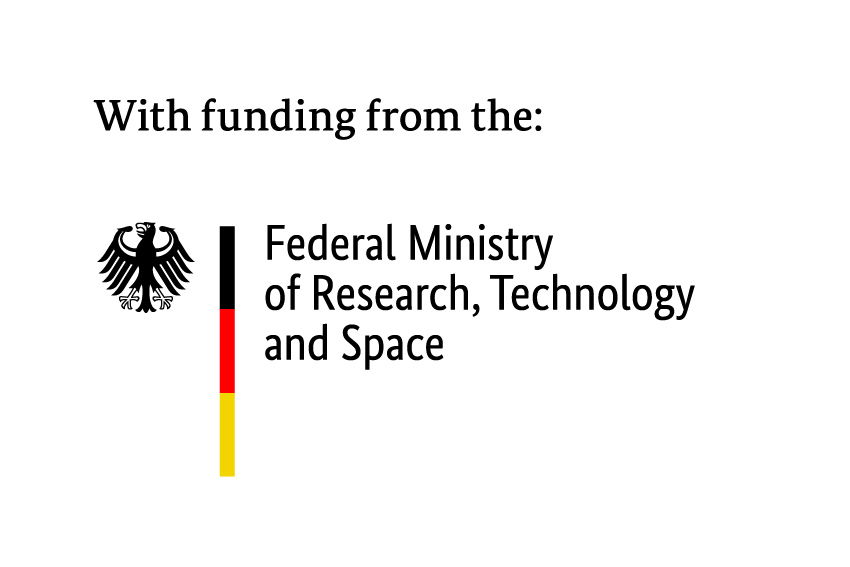Research
Research Interests
- Social Inequalities in work, education and family
- Intergenerational transmission and social mobility
- Education over the life course, particular early childhood and further job-related training
- Influence of institutional contexts, in particular social and family policies
- Social and digital change
- Political, environmental and gender role attitudes
- Sociology of health
- Quantitative Methods and mixed methods
Post-Covid Neurocognition – Monitoring and modelling post-COVID neurocognitive symptom trajectories, determinants and long-term impact on life and work
The Covid 19 pandemic not only posed social and political challenges to society but also put a significant strain on the health of the population. In addition to the immediate health consequences, many individuals have reported persistent fatigue and difficulties in concentrating and remembering – symptoms collectively known as "Long Covid." These long-term symptoms can have profound impact on the lives of those affected. In response to this, in the collaborative interdisciplinary project "Post-Covid Neurocognition - Monitoring and modeling post-COVID neurocognitive symptom trajectories, determinants and long-term impact on life and work", scientists from the Universities of Oldenburg and Hannover jointly investigate the long-term consequences of the pandemic. Therefore, prognosis models are being trained to better diagnose and treat long-term symptoms. The project is part of the COVID-19 Research Network Lower Saxony (COFONI) and receives funding (650.000€) by the Lower Saxony Ministry of Science and Culture (PI Prof. Dr. Mandy Roheger and Prof. Dr. Antje Wulff, University of Oldenburg).
As part of the project, the Working Group Social Inequalities, led by Prof. Dr. Gundula Zoch, is exploring the significance of unequal working and living conditions in relation to the risk of infection and potential long-term symptoms, as well as examining the social consequences for those affected by Long Covid symptoms. The aim of this working package is to understand how social factors influence the long-term consequences of Covid-19, enabling the development of appropriate measures for improved care and support of long-Covid patients.
Principal Investigators: Mandy Roheger and Antje Wulff
Funded by: COVID-19 Research Network Lower Saxony (COFONI)
Duration: July 1, 2023 – December 31, 2025
PEPP-COV – Political attitudes and political participation in the wake of the Covid-19 pandemic
The COVID-19 pandemic has had a significant impact on various aspects of life, including social, economic, political, and cultural aspects. It has also posed major challenges for individuals and society. In addition, the pandemic has exacerbated political divisions in society, which has contributed to the success of populist parties and the emergence of new protest movements. This (further) fragmentation of the (digital) public sphere presents fundamental problems related to legitimacy and negotiation for politics and society. It is not yet clear to what extent the pandemic has permanently changed political attitudes and related social and political participation, as suitable data from repeat surveys have not been available. The research project aims to fill this gap by using longitudinal data from multiple starting cohorts of the National Educational Panel Study (NEPS) and conducting in-depth qualitative focus group interviews across contexts in Germany. It will examine how and in which contexts political attitudes and associated social and political participation change in the medium and long term, and identify any social and regional disparities at play. The project will also focus on the relationship between educational trajectories and acquired competencies and the growing social inequalities caused by the pandemic, and how these factors may influence changes in political attitudes, evaluations, and social and political participation.
Collaborative Project Partners:
Sub-project 1 „ Quantitative analyses with the NEPS “
University of Oldenburg / LIfBi – Leibniz-Institute for Educational Trajectories
Prof Dr Gundula Zoch
Sub-project 2 „Conducting and evaluating focus groups“
EFBI – University of Leipzig / Else Frenkel-Brunswik Institute (EFBI)
Dr Johannes Kiess
Head of the project: Prof Dr Gundula Zoch (LIfBi)
Project duration: 2023 – 2025
Funded by: BMFTR

Understanding the role of maternal labour markets and workplace contexts for children’s development (WorkMum)
Maternal employment has increased substantially in many industrialised countries, and thereby transformed family life and the environment in which children grow up. The employment conditions that enable mothers to reconcile work and family life differ significantly between, e.g., occupations, workplaces, socio-economic groups, and regions. They could create important differences in children’s early learning environments, which are increasingly acknowledged as important sources of early socio-economic gaps in children’s development and social inequalities throughout the lifespan. Yet, we know little about how differences in maternal labour market opportunities and the direct workplace contexts actually create differences in reconciling work and family life, and how they shape children’s early learning environment and development. The proposed research project will investigate how maternal employment characteristics affect children’s cognitive and non-cognitive development in the first ten years of life. The research project will combine a sociological and economic perspective to (1) examine the role of the macroeconomic environment and local labour market conditions for maternal employment decisions, family life and child development; and to (2) examine factors that contribute to the family-friendliness of maternal workplaces, and how they in turn affect children’s development. As the current Covid-19 pandemic highlights the importance of workplace contexts and macro labour market conditions, the proposed project will also examine (3) whether differences in maternal workplace contexts and local labour market conditions have amplified inequalities in children’s development during the Covid-19 pandemic. Throughout the research agenda, we will provide a detailed empirical analysis of potential mechanisms. We focus on Germany, where recent family policies have encouraged early maternal employment. Our analysis will apply modern causal analysis and advanced regression techniques. We will build the analysis on the innovative large-scale survey panel data from the National Educational Panel Study (NEPS-SC1-ADIAB). The data combines detailed information on family life and high-quality measures of children’s cognitive and non-cognitive skills with mother’s full administrative employment biographies as collected by the Federal Employment Agency. Additionally, we will link (a) tailored data on local labour markets at different regional levels that we generate from the universe of administrative employment data, (b) information on family-friendly workplace audits, (c) occupational telework index data and (d) data on regional daycare and all-day schooling conditions. Thereby, the project creates a rare opportunity to provide insights on the effects of maternal employment conditions at the macro- and micro-level that have rarely been considered.
Principal Investigators: Gundula Zoch and Mathias Huebener (BiB)
Funded by: DFG
Duration: 2022-2025
Measuring "conspiracy mentality" & "political deprivation" in the National Educational Panel Study (NEPS)
The present is characterised by increasing social polarization, which contributes to the success of populist parties and new protest movements. In particular, the spread of conspiracy narratives and fake news, as well as the further fragmentation of the (digital) public pose fundamental problems of legitimacy and negotiation for politics and society. The sociological and socio-psychological study of political attitudes and the associated political participation is therefore of particular scientific and social relevance. Populist, conspiracy-affiliated and authoritarian attitudes have especially gained social relevance. They are very often accompanied by a general dissatisfaction or rejection of democracy as well as the devaluation of others. Against the backdrop of current trends and challenges, the question therefore arises as to how and in what context the above-mentioned political attitudes and evaluations arise, which social disparities are effective in their formation and how they shape political and social participation. The project focuses on investigating which educational trajectories and acquired competencies are related to the change in political attitudes and evaluations.
Principal Investigators: Gundula Zoch (with Johannes Kiess, Else-Frenkel-Brunswik-Institut für Demokratieforschung/University of Leipzig)
Funded by: CfM for the National Educational Panel Study/ Leibniz Institute for Educational Trajectories (LIfBi)
Duration: 2021-2025
Effects of the Corona pandemic on job-related learning in adult life
The Corona pandemic has affected learning participation, processes, and outcomes across the world. However, most recent research has focused heavily on children and adolescents in initial education. Conversely, the question of how the pandemic has affected learning in adult age, particularly job-related adult education and training (AET), has been largely neglected in public discourse and research. The Corona pandemic has profoundly changed the supply and demand for adult education in a short period of time. Traditional AET in the form of on-site courses has largely collapsed, and many firms have reduced their investment in training. At the same time, new opportunities for professional learning have emerged for some groups of employees due to short-time work, while others had less time because they had to care for their children when working from home. Finally, the crisis led to accelerated digitization, which has created the need for many employees to learn new things quickly. By analysing rich panel data from the National Educational Panel Study (adult cohort), the project will provide evidence on how the pandemic has affected participation in different forms of AET, which learning barriers and opportunities the crisis brought, and how this has changed patterns of social inequality in AET. Since AET will be a key component in mitigating pandemic-related distortions in the labour market, it is important to answer these questions soon in order to derive targeted adult education strategies.
Principal Investigators: Corinna Kleinert (LIfBi)
Co-Investigator: Gundula Zoch
Funded by: DFG
Duration: 2022-2023
Effects of employment insecurity and job loss on children’s development
The project investigates how children's early development - as an important basis for further skill acquisition and educational success - is affected by job insecurity or the loss of the mother's job. The focus is on the extent to which labor market disruptions affect the mother's employment biography, mental well-being, and child development at different stages of early childhood in the short and medium term. The project uses data from the National Educational Panel Study (NEPS, Start Cohort 1). The project will provide new insights into the mechanisms of intergenerational transmission of social inequality. Against the backdrop of the emerging global negative effects of the Corona crisis on labor markets and working conditions, the question of the impact of families' occupational insecurities on child development is of particular relevance.
Principal Investigators: Gundula Zoch (with Corinna Frodermann (IAB) and Mathias Huebener (DIW Berlin))
Funded by: Leibniz Education Research Network (LERN)
Duration: 2020-2021

